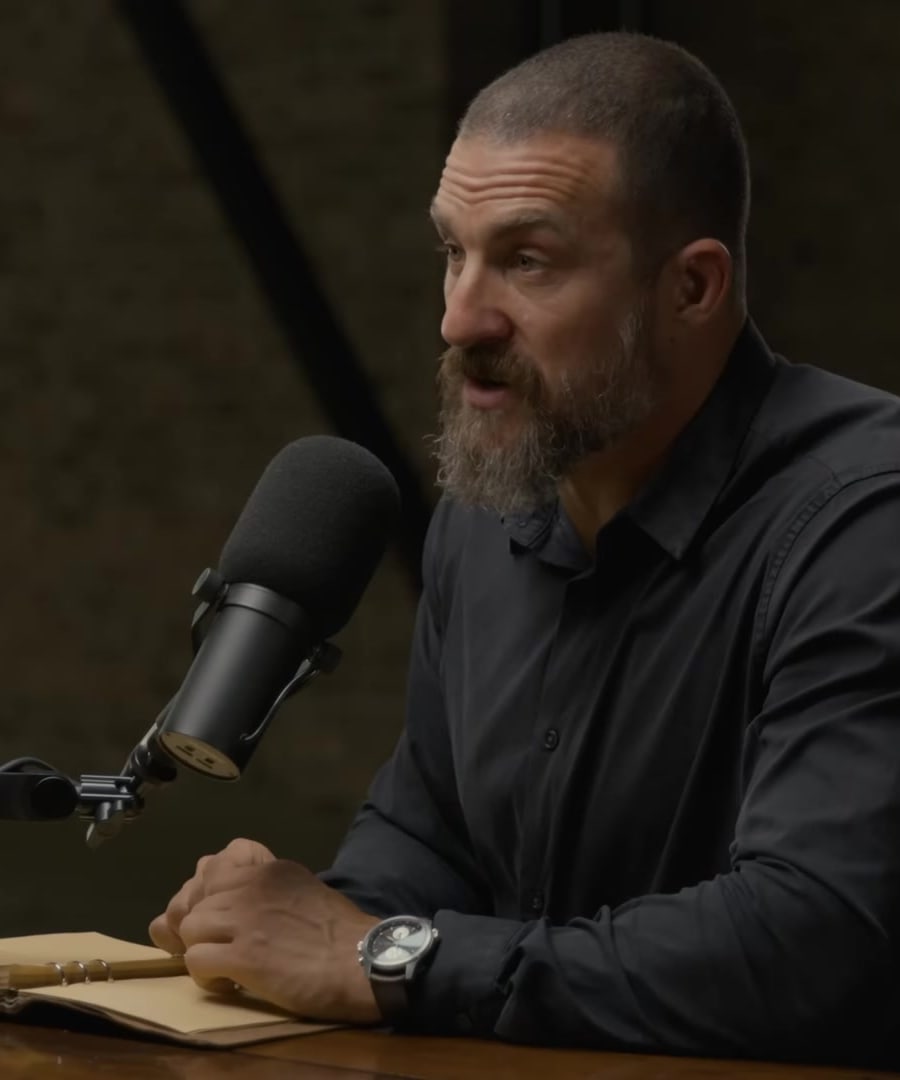How do I schedule my eating schedule to have energy throughout the day
Sources:
To manage your energy levels throughout the day with your eating schedule, the has shared several key insights and strategies:
-
Circadian Eating: Adhere to a circadian eating schedule where you eat only when the sun is up and stop eating a couple of hours before sleep. This helps in regulating the natural body clock and your energy levels 1.
-
Time-Restricted Feeding: Begin eating at least one hour after waking and finish at least two hours before going to sleep, keeping the feeding window consistent each day to help synchronize your body's internal clock with your activities 2.
-
Meal Timing Flexibility: Some flexibility in your meal schedule can help with social engagements or work schedules. Pushing the first meal out by about 45 minutes per day can adjust your ghrelin secretion and energy levels with a gradual transition 3.
-
Consume Caloric Energy Efficiently: Find an eating schedule that fits your lifestyle and other commitments. Leverage the caloric energy from foods to maintain alertness without causing a parasympathetic response that might make you feel tired or brain foggy. This often involves personal experimentation to discover what works best for you 4.
-
Avoid Late Night Eating: Eating during the nocturnal phase is detrimental to health, so avoid late-night meals to align your eating with the more active phases of your day for better energy management 5.
-
Consistent Meal Schedules: Maintaining a consistent meal schedule can help anchor your sleep and light viewing schedules, contributing to better control over your energy systems 6.
These strategies can help you optimize your energy levels by leveraging the natural circadian rhythms and hormonal responses associated with eating. Always remember to listen to your body and adjust timings as needed for your unique circumstances.
Thank you for your feedback!RELATED QUESTIONS-
How do I not feel hungry at night or just when I wake up
Sources:
Managing hunger at night and when you wake up involves several strategies that can be adapted to your needs, as mentioned in the :
-
Meal Timing: Avoid eating too close to bedtime. Keep your last meal a couple of hours before you go to sleep to prevent hunger pangs at night 1. Also, try not to eat immediately upon waking up—giving your body at least an hour before having your first meal can help establish a healthy routine 2.
-
Intermittent Fasting: Intermittent fasting protocols like skipping a meal, preferably breakfast or dinner, can help regulate your hunger cycles in alignment with your sleep 3. This strategy leverages your natural sleep-related fasting period for improved energy regulation.
-
Hydration: Keep yourself hydrated with water or non-caloric drinks throughout the day, which can help suppress hunger 3.
-
Dietary Choices: Consuming foods that provide satiety and are slowly digested, such as those high in fiber, protein, and healthy fats can help stave off hunger.
-
Own Schedule: Tune into your body's signals and personal rhythms 4. If you find yourself hungry in the morning, consider adjusting your dinner time to be earlier, or ensure that it's a well-balanced meal that will sustain you through the night.
Remember that this process can involve initial discomfort as the body adapts to new eating patterns, especially within the first few weeks 3. It is essential to find what approach keeps you satisfied and works best for your schedule and goals.
RELATED QUESTIONS-
Continue
Sources:
To further manage hunger at night and when waking up, consider the following based on insights from the :
-
Training State: Decide whether to train fasted or fed. Personal preference plays a role. prefers cardiovascular work not having eaten for 3 to 10 hours upon waking up. His first meal is generally around 11:00 AM, and his training preference is to engage in fasted resistance training early in the day, followed by eating soon after. If you wake up feeling hungry, it might be okay to train fed to accommodate your schedule while maintaining flexibility 1 2.
-
Circadian Rhythms: Align your sleep, exercise, and eating schedule with when you feel most alert. This alignment can help manage hunger by timing food intake during periods of alertness and avoiding food intake close to bedtime or right upon waking 3.
-
Time-Restricted Feeding: Experiment with time-restricted eating windows. If you're looking to maximize the benefits of time-restricted feeding, having a two to three-hour buffer before sleeping without eating is beneficial. You can adjust the eating window (e.g., 12:00 PM to 8:00 PM or 2:00 PM to 10:00 PM) based on when you feel most hungry and your exercise schedule 4.
-
Personal Preference: Some people are not hungry early and prefer to eat later in the day—adjust according to your hunger cues and the demands of your schedule. The key is finding the ideal schedule that works for you personally 5.
This approach includes self-experimentation and flexibility to find what optimizes your routines and hunger management. Adjustments might be necessary based on your individual response and lifestyle needs.
RELATED QUESTIONS-
What examples of these food that provide satiety and are slowly disgusted. Provide a sample meal plan
Sources:
Foods that help promote satiety and are digested slowly typically include those high in fiber, protein, and healthy fats. While there's no specific meal plan provided in the clips, here's a general guideline to create meals that are likely to keep you full for longer:
- Fiber-rich foods: Vegetables, fruits, legumes, and whole grains
- High-quality protein: Lean meats, fish, eggs, and dairy products
- Healthy fats: Nuts, seeds, avocados, and olive oil
An example of a sample meal plan could be:
Breakfast: Oatmeal with nuts, seeds, and berries Lunch: Grilled chicken salad with mixed greens, avocado, and a variety of vegetables Dinner: Baked salmon with quinoa and steamed broccoli Snacks: Greek yogurt, apple slices with almond butter, or raw vegetables with hummus
Remember that individual nutritional needs and digestion rates can vary, so it may be beneficial to adjust this sample plan according to one's personal preferences and satiety cues. The importance of appetite regulation in weight loss and the potential role of gut health in this process is supported by the discussion with Layne Norton on the , which emphasizes the complexity of gut health and its evolving scientific understanding 1.
RELATED QUESTIONS
How do I schedule my eating schedule to have energy throughout the day
- Thank you for your feedback!RELATED QUESTIONS
How do I not feel hungry at night or just when I wake up
- RELATED QUESTIONS
Continue
- RELATED QUESTIONS
What examples of these food that provide satiety and are slowly disgusted. Provide a sample meal plan
- RELATED QUESTIONS














